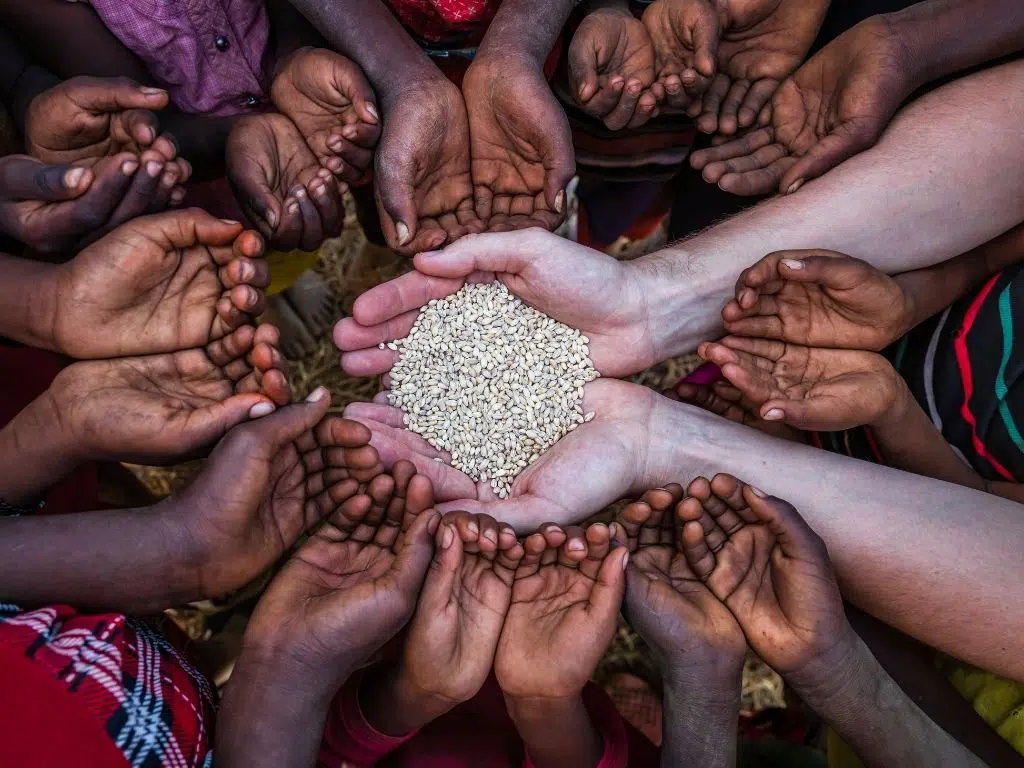
Some experts have called for concerted effort to address food insecurity via promoting and supporting farmers to optimise their capacities.
The experts made the call on Tuesday in Ikeja, at the 11th annual summit of the Association of Lagos State Retired Heads of Service and Permanent Secretaries (ALARHOSPS).
The summit had the theme: “Agenda For Sustainable Development and Food Security.”
The experts called for support for existing farmers and Agribusiness Small and Medium-sized Enterprises (SMEs) to optimise their capacities and link smallholder producers to national markets.
Speaking, Dr Seye Oyeleye, Director-General, Development Agenda for Western Nigeria (DAWN) Commission, highlighted the pressing issue of food security, citing persistent challenges, in spite of minor global improvements.
Oyeleye identified factors contributing to food insecurity to include technology gaps, limited access to information, and lack of knowledge about climate-resilient practices.
He said there was a need for a people-oriented engagement within the agricultural sector, noting that harnessing investment opportunities would enable stakeholders to address food insecurity in Nigeria, especially in the South-West.
“There is limited access to information on best practices and market trends and lack of knowledge about climate-resilient agricultural practices.
“These factors collectively contribute to reduced agricultural productivity, lower food production, and increased food insecurity in Nigeria, with particular impact on the South-West region.
“Also, in the South-West region, low budget allocation to the agricultural sector, land tenure conflicts, inadequate monitoring and evaluation, shortage of extension service, staff insecurity among others, lead to food insecurity,” he said.
Oyeleye said that provision of financial assistance to farmers for purchasing seeds, fertilisers, and other essential inputs would ensure high-quality raw materials for farming and boost productivity.
He said that investing in systems to monitor and evaluate agricultural processes, ensuring best practices must be emphasised to ensure that yields are optimised.
“Invest in, or facilitate off-take agreements to ensure farmers have a guaranteed market for their produce.
“Target crops and products that can replace imports, contributing to national food security and reducing foreign exchange expenditure.
“Fund startups focusing on improving agricultural productivity through technology, among others,” Oyeleye further advised.
On his part, Dr Adetunji Oredipe, an Agric Economist with the World Bank, urged the government to shift focus towards driving an integrated food system agenda.
According to him, this will promote new ways of doing business, address market and institutional incentives.
Oredipe said that there was the need for strategic partnerships, political will, and multiple actions across sectors, to drive structural change and unlock the full potential of partners.
He said that investing in future generations would ensure long-term dividends and called for a renewed focus on building resilience and sustainable food systems.
Oredipe said that supporting agribusiness SMEs would play a critical role in linking smallholder producers to national markets, meeting food demand, and creating job opportunities.
He noted that focus toward driving an integrated food systems agenda that promotes new ways of doing business could be achieved through five infrastructural systems.
Oredipe said that the five infrastructural systems include innovation, incentives, institutions, investment, and information.
He, therefore, called on the government to enhance competitiveness so as to deepen diversification of production in the agricultural value chain.
NAN.





